
BY THE TIME THE dramatic events of 9/11 triggered the US-led Global War on Terror (GWOT), India had been fighting its own war on terror for over a decade. Only difference was that the west and especially the US had refused to recognise the gravity of Pakistan’s use of terror as an instrument of state policy because of their own narrow geopolitical interests. Having failed to take Kashmir first in 1948 and 1965 and after a humiliating defeating the 1971 war which saw the surrender of 93,000 Pakistani troops, then Pakistan Prime Minister Bhutto laid down the doctrine of continuing the conflict by “inflicting a thousand cuts” on India. His Army Chief General Zia-ul-Haq deposed Bhutto in a military coup, had him executed and later gave shape to the Thousand Cuts policy.
Fighting the Global War on Terror
A nascent Khalistan movement was fanned by the ISI, which trained and armed young Sikhs to wage a violent secessionist insurgency that lasted for over a decade starting mid-80s. Operation Blue Star was launched in 1984 by the Indian Army to flush out terrorists from the sacred Golden Temple, giving it first-hand experience of the immense challenges of fighting terror in urban built-up areas. The secessionists then assassinated Indian Prime Minister Indira Gandhi as a revenge and entrenched themselves in the towns and villages of Punjab. The ensuing intense firefights took a heavy toll. 1,714 security personnel, 1,700 soldiers, 7,946 militants, and 11,690 non-combatants were killed throughout the conflict.
Denne historien er fra December 2023 - January 2024-utgaven av SP's Land Forces.
Start din 7-dagers gratis prøveperiode på Magzter GOLD for å få tilgang til tusenvis av utvalgte premiumhistorier og 9000+ magasiner og aviser.
Allerede abonnent ? Logg på
Denne historien er fra December 2023 - January 2024-utgaven av SP's Land Forces.
Start din 7-dagers gratis prøveperiode på Magzter GOLD for å få tilgang til tusenvis av utvalgte premiumhistorier og 9000+ magasiner og aviser.
Allerede abonnent? Logg på

Indigenous Might on Display
INA RAPIDLY EVOLVING global landscape marked by geopolitical tensions and emerging security threats, nations around the world are continuously enhancing their military capabilities to ensure sovereignty and national security.
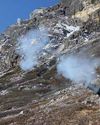
Future of Battlefield Lethality
A look at the latest trends reshaping Land Warfare Munitions
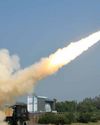
Indigenous Ammunition Production
Meeting the critical need for ammunition by the Armed Forces requires rapid ramping up of indigenous production
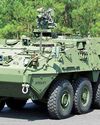
Stryker Production under 'Make in India'?
India explores joint production of Stryker armoured vehicles with the US as part of their Strategic Alliance
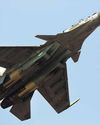
Rosoboronexport goes on to work on Technology Partnership Contracts with Friendly Countries
Empowering Global Defence Production through Innovation, Collaboration and Pioneering Technology Partnerships in the evolving landscape of Military Cooperation

Yugoimport - A Global Player in Artillery
Yugoimport-SDPR has constantly innovated itself as a manufacturer of complex weapon systems and defence equipment
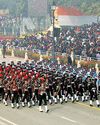
Womanpower in Uniform: Republic@75
India takes a big stride into the future as Women Warriors lead the charge in India's 75th Republic Day Celebration

Defending DRDO: Restructure the Responsibilities
A strategic transformation of DRDO is needed to chart a course for excellence in defence technology and a more agile and responsive future
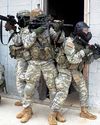
Fighting Terror: Armies in New Urban Warfare
Navigating the realities of Urban Warfare and lessons drawn from the ongoing global fight against terror

Indian Army: In Quest of Greater Firepower and Policy Recommendations for Gaps
Charting the Future under General Manoj Pande's Vision for a Tech-Driven Army, the Indian Army is driving ahead for Next-Gen Combat Capabilities